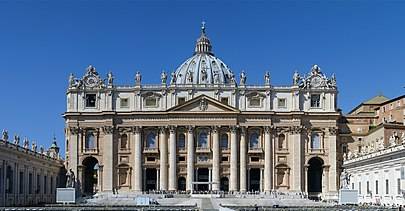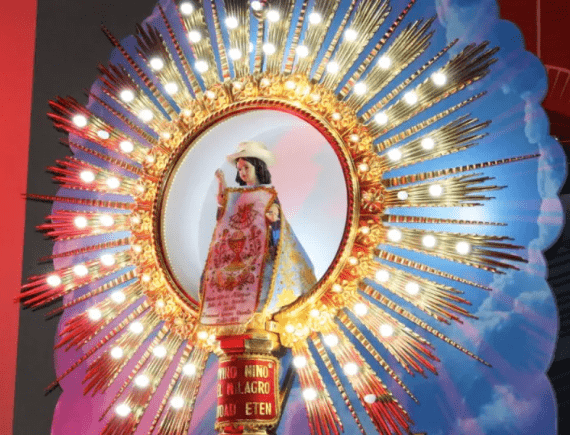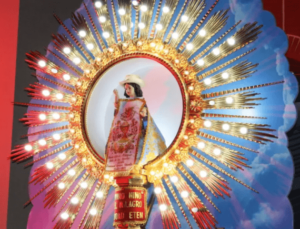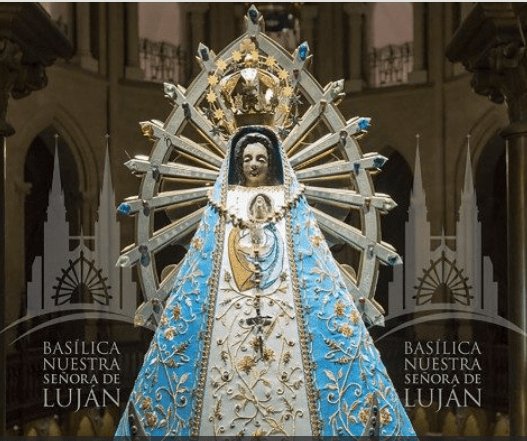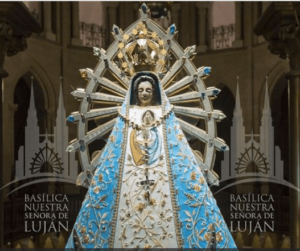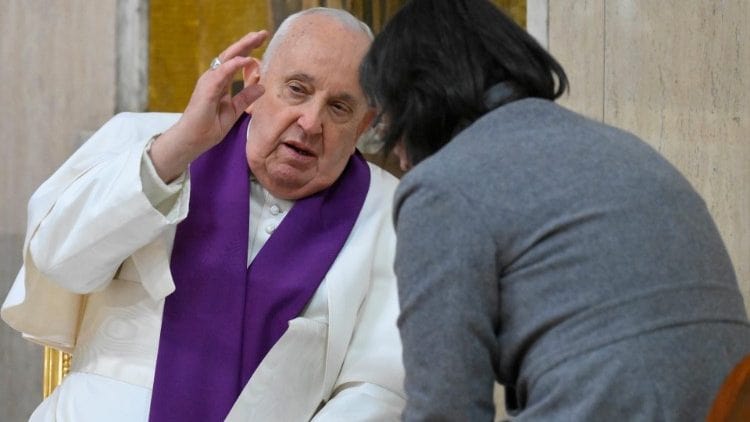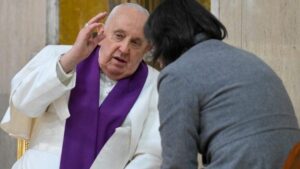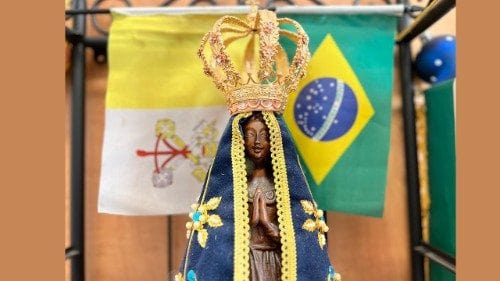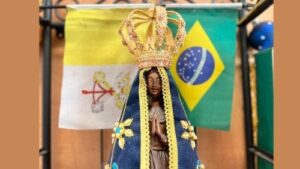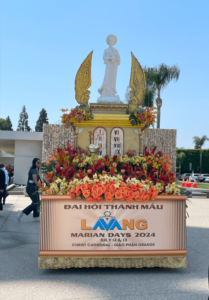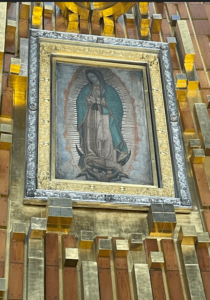Đền thánh Tử đạo Haemi Hàn Quốc
Đền thánh Tử đạo Haemi Hàn Quốc trở thành di sản quốc gia
Đền thánh là bằng chứng đức tin của khoảng 2.000 người Công giáo Hàn Quốc trong thời đầu của Giáo hội tại Hàn Quốc.
Hàng ngàn người Công giáo đã bị giam cầm, tra tấn và tàn sát khi triều đại Joseon tiến hành cuộc đàn áp tàn bạo đối với các Kitô hữu vào thế kỷ 19.
Giáo hội dựng một tháp tưởng niệm cao 16 mét để tôn vinh hàng trăm vị tử đạo vô danh.
Giáo hội chỉ có thể có danh sách rõ ràng của 132 người Công giáo, những người đã chịu tử đạo tại Haemi.
Đền thánh Haemi là địa điểm thứ hai của Hàn quốc và là địa điểm thứ ba của Á châu được Toà Thánh nhìn nhận là điểm hành hương quốc tế.
Vào ngày 15/3 vừa qua, Cục Quản lý Di sản Văn hoá Hàn Quốc đã thông báo cho Đức cha Matthias Ri long-hoon của Giáo phận Suwon về việc đền thánh Haemi được đưa vào danh sách di sản quốc gia.
Trong nội dung thông báo, cơ quan chính phủ ca ngợi đền thánh vì giá trị văn hoá và kiến trúc, với hình dạng ban đầu được bảo quản tốt, các ngôi mộ nằm ở phía trước đền thánh thể hiện tính biểu tượng và ý nghĩa về vị trí đền thánh.
Như vậy một khi đã được đưa vào danh sách di sản quốc gia, đền thánh Haemi cùng với bốn nơi thờ phượng khác của giáo phận Suwon được lên kế hoạch bảo tồn và quản lý một cách có hệ thống trong sự hợp tác giữa chính quyền địa phương và Giáo hội. (Ucannews 17/3/2023)
The faithful in South Korea are celebrating official Vatican recognition of a sacred Catholic site dedicated to thousands of martyrs as an international pilgrimage site.
The Haemi Martyrdom Holy Ground at Seosan in central South Korea has been designated and proclaimed an international pilgrimage site by the Holy See, stated a press release from Bishop Lazzaro You Heung-sik of Daejeon.
The prelate said the Vatican recognition was made public on March 1, the 200th anniversary of the birth of prominent theologian and local missionary priest Father Thomas Choe Yang-eop, who is on the path to sainthood.
The Vatican announcement “brightens the lives of those who live forever in the memory of the Church,” said Bishop You.
“Walking along the pilgrimage site of faith, let us meet the martyrs who are a testament to God’s work of salvation through their life and death.”
The Shrine of Haemi is located in the municipality of Seosan in South Chungcheong province about 280 kilometers south of the capital Seoul.
The shrine bears testimony to the great faith of about 2,000 Catholics who were imprisoned, tortured and buried alive during mass persecution of Korean Christians by rulers of the Joseon dynasty between 1866 and 1882.
Bishop You said that the Vatican primarily approved the Shrine of Haemi as an official international pilgrimage site on Nov. 29 last year and steps were taken for its proclamation.
Thanks to efforts from the Church, a 16-meter memorial tower was set up on the Haemi ground to pray tribute to hundreds of unknown martyrs. Church records show names and baptismal Christian names of only 132 Catholics who embraced martyrdom at Haemi.
Archbishop Salvatore Fisichella, president of the Pontifical Council for the Promotion of New Evangelization of the Holy See, said in the decree that the testimony of numerous martyrs of the Korean Church “will pass on faith to the descendants and make a living community of disciples and witnesses of Jesus Christ come true.”
The Haemi shrine is the second Korean site, and the third in Asia, to be recognized as an international pilgrimage site by the Vatican after the Seoul Catholic Pilgrimage Routes.
Along with the three historic international pilgrimage sites of Jerusalem, Rome and Santiago de Compostella, the Holy See has recognized 20 sites of Marian apparitions in various parts of the world.
“The proclamation of the Haemi Martyrdom Holy Ground as an official international pilgrimage site is a glorious event that recognizes the faith of nameless martyrs as an example and makes it known to the entire world,” a Catholic priest in charge of the shrine said in an interview with Yonhap news agency.
Maeng Jeong-ho, mayor of Seosan, said that the municipality is glad as Seosan’s historical significance has been internationally recognized and they vow to make good efforts to preserve the sacred site.
About 46 percent of South Koreans adhere to no religion while 29 percent are Christians and 23 percent are Buddhists in a population of about 51.8 million, according to Pew Research Center.
While Protestants make up the majority, the Catholic Church also has a significant following, estimated to be 11 percent of the population or about 5.6 million people.


